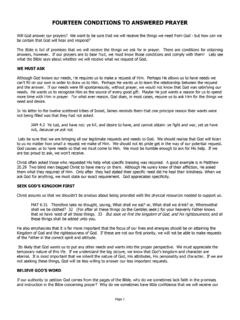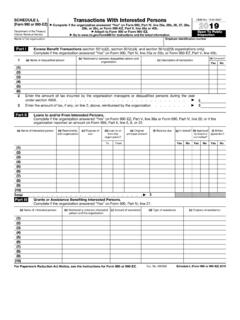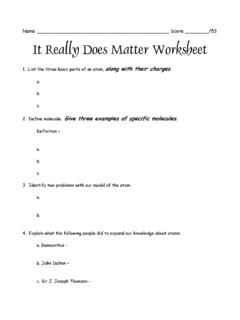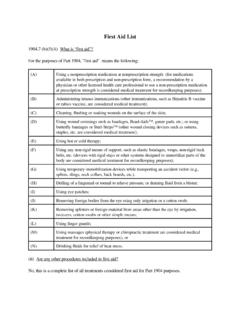Transcription of Utilization Review – FAQ’S answered by the State
1 550 Ellinwood Way, Pleasant Hill CA 94523 Utilization Review FAQ S answered by the State About Utilization Review : Q. What is Utilization Review (UR) and why is it used for workers compensation? A. UR is the process used by employers or claims administrators to Review medical treatment given to injured workers to determine if it is medically necessary. All employers or their workers compensation claims administrators are required by law to have a UR program. This program is used to decide whether or not to approve medical treatment recommended by a physician. The purpose of UR is to ensure that treatment provided to injured workers is medically necessary. Each UR process must be described in a UR plan that provides a description of how requests for treatment authorization are reviewed.
2 That plan must be filed with the Division of Workers Compensation (DWC) administrative director. Q. When does UR begin? A. Although many people think UR begins when an authorization request is forwarded by the claims administrator to the reviewing physician, the process actually begins when the request for authorization is first received, whether by the employer, claims administrator or Utilization Review organization (URO). Q. Is Utilization Review required in every case? A. While the DWC has interpreted LC 4610(a) to require that all requests for authorization are subject to the UR time requirements and procedures, claims administrators are allowed and encouraged to establish guidelines within their Utilization Review plans under which certain requests for treatment are not required to go through a third party UR process.
3 The DWC supports the establishment of "UR best practices" that allow claims administrators to approve appropriate levels of care for injured workers at the lowest possible levels within the claims organization, without having to send those requests through a third party process. Additionally, the UR regulations provide a way to give physicians authority to treat their patients without requesting authorization at all. This process is called prior authorization. "Each Utilization Review process shall be set forth in a Utilization Review plan which shall contain: (5) A description of the claims administrator's practice, if applicable, of any prior authorization process, including but not limited to, where authorization is provided without the submission of the request for authorization.
4 " (emphasis added) Nonetheless, the extent to which Utilization Review is mandatory has been the subject of recent litigation before the WCAB and the courts. A case currently pending before the California Supreme Court is expected to clarify the issue definitively later this year. Q. Does approving a request for authorization as medically necessary mean the bill for that treatment will be paid? A. Yes. Authorization means assurance that appropriate reimbursement for a specific treatment will be paid. (8 CCR (b)) Q. What is a request for authorization? A. This is how a doctor requests treatment for an injured worker. A request for authorization may initially be made verbally, but it must be confirmed in writing on the doctor s First Report of Occupational Injury or Illness (form DLSR 5021), the Primary Treating Physician Progress Report (DWC form PR-2), or in a narrative report that contains the same information required in the PR-2 form.
5 If a narrative report is used, the document must be clearly marked at the top as a request for authorization. (8 CCR (o)) 550 Ellinwood Way, Pleasant Hill CA 94523 Back to top About different types of UR: Q. What is a prospective Review ? A. A prospective Review is any UR conducted prior to the delivery of the requested medical services. Reviews conducted during an inpatient (hospital) stay are an exception to this. Prospective reviews must be done within five days from receipt of the request for authorization unless more information is needed to make the decision. In that case, up to 14 days are allowed. (8 CCR (n)) Q. What is a concurrent Review ? A. A concurrent Review is UR conducted during an inpatient (hospital) stay. The timeframe is the same as for prospective reviews.
6 (8 CCR (d)) Q. What is a retrospective Review ? A. A retrospective Review is UR conducted after medical services have been provided and for which approval has not already been given. Retrospective reviews must be completed within 30 days. (8 CCR (p)) Q. What is an expedited Review ? A. An expedited Review is UR conducted when the injured worker faces an imminent and serious threat to his or her health, including, but not limited to, the potential loss of life, limb or other major bodily function. Expedited Review also applies when the normal timeframe for the decision-making process would be detrimental to the injured worker's life or health, or could jeopardize the injured worker's permanent ability to regain maximum function. Expedited reviews must be completed within 72 hours, or less if the injured worker's condition warrants a shorter timeframe.
7 (8 CCR (g))






